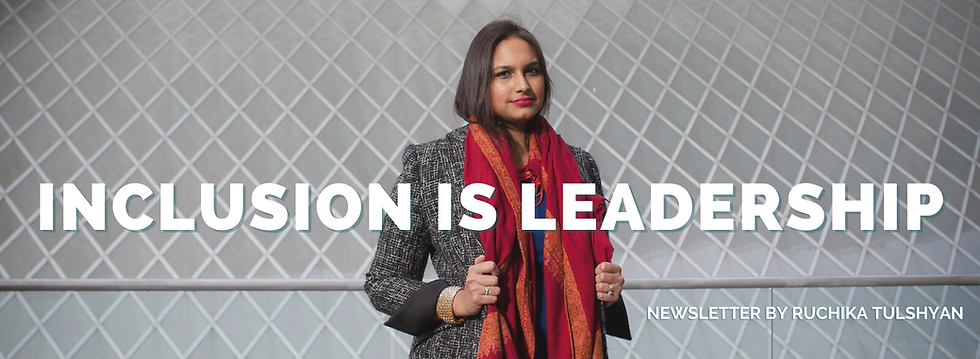Pay Your Speakers. Full Stop.
- Ruchika T. Malhotra
- Dec 14, 2021
- 3 min read

If I’m never asked to speak for free again, it’s too soon.
Yes, I know that doesn’t quite make sense, but I hope it conveys to you my utter dismay and astonishment at the countless unpaid speaking “opportunities” that abound.
And I know I’m not alone: Few topics incite more ire among my professional speaking colleagues than unpaid speaking opportunities.
Yet these “opportunities” are everywhere! And they’re not equally distributed: It’s my anecdotal experience — mine and others’ — that women of color are more likely than white women, men of color, and white men to be expected to speak for free.
(As a side note, I am surprised I could not find research on pay rates for speakers by gender or race/ethnicity. If you’ve come across any, please let me know!)

Why do we think speaking is “free”??
Let me start by assuming positive intent. Perhaps you’re new to your job and tasked with finding speakers for a free event. You think, we’re only asking for 30-minute presentations. The event will be free, so the speakers will get tons of exposure. Exposure is a form of compensation!
I can understand this line of thinking — but it’s problematic. Firstly, preparing a solid presentation for a public audience takes hours of research, preparation, and rehearsal (sometimes more so if it’s a short presentation). No 30 minute presentation requires only 30 minutes of work.
Secondly, the presentation content and the speaker’s profile — which will attract attendees and impact each person beyond the event itself — often represents a career’s worth of work.
Thirdly, there’s the opportunity cost to your speaker. The hours she spends preparing to speak at your event for free are hours she could spend doing paid work. (And don’t even get me started on those events that expect speakers to pay for their own travel and lodging for the supposed benefit of free exposure!)
Not compensating speakers appropriately has a cascade of effects that make truly inclusive conferences with diverse perspectives and lived experiences impossible. After all, speaking for free isn’t a realistic option for many people, especially people of color who are most disadvantaged by a large racial wealth gap.
“Exposure” cannot pay the bills. “Exposure” cannot help speakers build their businesses, create new jobs, support community causes, or build generational wealth for their families.
But most importantly: why is it ever acceptable to expect someone to work for free?
You wouldn’t expect the caterer to provide refreshments for free or the sound and lighting engineers to do their work uncompensated. Why is speaking any different?
My answer, as you can probably guess, is that it isn’t different. Speaking is a valuable professional service and we must treat it as such — especially if we’re committed to inclusive and equitable events.
But what if I have NO budget?
I want to address a concern some of you may have, especially if you work with a tight budget. I encourage you to source inclusively for your events regardless, as long as your approach is respectful.
Make sure the speaker understands why you’re asking her to speak, such as the impact she can have on your community members.
Offer an “honorarium” or token amount to demonstrate that you’re giving what you can. Make sure to compensate for travel and lodging, or offer a virtual option so the onus is never on the speaker to pay her way to the event.
If you’re a nonprofit, provide a tax-deductible donation receipt so your speaker can write-off her donation of speaking services at tax time.
And always ensure that all speakers are compensated — not just some. (I don’t mean that all must be compensated identically — high-profile speakers will command a higher fee. But never pay some speakers and expect others to work for free.)
This is an instance where you have the power to advocate for inclusion and equity. Use your privilege and influence to ensure speakers are paid. I’ve seen it work in multiple organizations: when someone asks “why are we paying caterers but have no budget for speakers,” it gives leaders the opportunity to see with new eyes.
Your advocacy makes a difference, and you can start today.
Are you planning events with speakers? Forward this post to your leaders or financial team to open a discussion about paying your speakers — or at least offering them something meaningful in return for their valuable service.

.png)
Comments